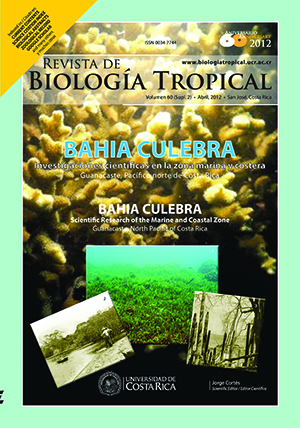Abstract
The geology of Culebra Bay, Guanacaste, Costa Rica, is composed of volcanic rocks of oceanic crust; marine sediments deposited on the slope, continental platform and superficial zones nearby to the coast, pyroclastic rocks inset with continental sediments and recent Quaternary deposits. At the base of the stratigraphy sequence the massive basalts outcrop, sometimes as pillow, from Nicoya complex with aphanitic texture with olivine phenocrysts, augites and plagioclases. Into the same formation are included intrusives of massive gabro with pyroxene and plagiogranites with phenocrysts of plagioclases and hornblendite. Then limestones outcrop from El Viejo formation formed by colonies of reefs and limestone rocks. The Montezuma formation is composed of fossiliferous sandstone, facies of sandstone with cross-lamination and facies of sandstone and lutites. The Dacitas Carbonal are composed of lavas with pumice clasts and alteration minerals. The Bagaces formation is composed of several eruptive events with ignimbrites and possibly of a sand volcaniclastic sedimentary deposit. At the top of the stratigraphic sequence are included, product of factors such as colluvial erosion, and beach sand, areas of mangrove sediments and alluvium.##plugins.facebook.comentarios##
Downloads
Download data is not yet available.






